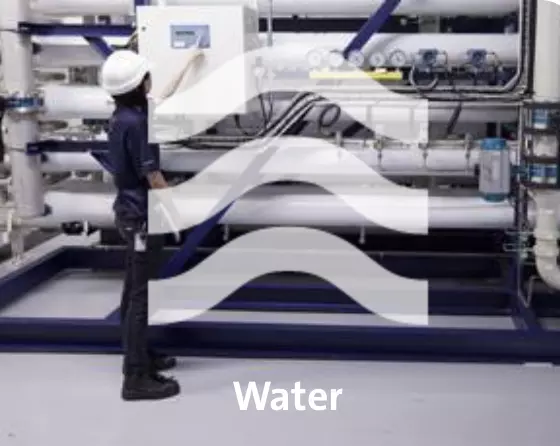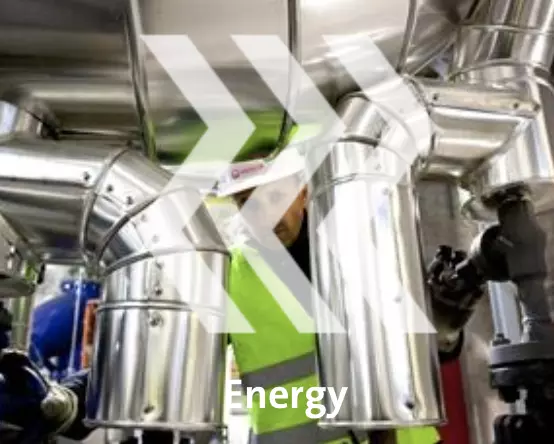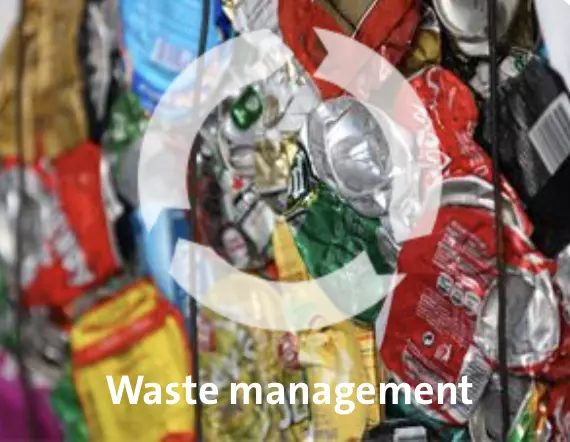Veolia group is the global leader in optimized resource management. With over 178,000 employees worldwide, the Group designs and provides water, waste and energy management solutions which contribute to the sustainable development of communities and industries. Through its three complementary business activities, Veolia helps to develop access to resources, preserve available resources, and to replenish them.
In 2019, the Veolia group supplied 98 million people with drinking water and 67 million people with wastewater service, produced nearly 41 million megawatt hours of energy and converted 50 million metric tons of waste into new materials and energy. Veolia Environnement (listed on Paris Euronext: VIE) recorded consolidated revenue of €27.189 billion in 2019.
€ 27.189 billion in revenue
3 core businesses:
Water, Waste Management & Energy Services
178,000 employees around the world

Water
• 98 million people supplied with drinking water
• 67 million people connected to wastewater systems
• 3,548 drinking water production plants managed
• 2,835 wastewater treatment plants managed

Energy
• 591 district and local heating and cooling networks
• 41 million MWh produced
• 45,097 multi-family housing units managed
• 2,357 industrial facilities managed

Waste Management
• Collection services for more than 42 million people on behalf of local authorities
• 519,046 business customers
• 50 million metric tons of waste treated
• 675 treatment plants operated
SEVEN GROWTH MARKETS
Veolia has identified seven key growth markets, representing sectors with significant potential to generate revenue, in which resource strain drives growing demand for narrowly specialized expertise. These sectors are opening up new opportunities for environmental services in which Veolia already provides benchmark solutions:
- The circular economy, to tackle the problem of dwindling raw materials, water and energy resources
- Innovative solutions to improve life in cities and related services
- Treating difficult pollutions, such as toxic waste, treatment sludge and contaminated wastewater
- Dismantling for oil rigs, ships, aircraft and nuclear plants
- The food & beverage and pharmaceutical industries, ensuring compliance with stringent standards on health, safety and quality
- Mining & metal and power industries, which requires extensive resources
- The oil & gas and chemical industries, governed by increasingly demanding environmental standards


